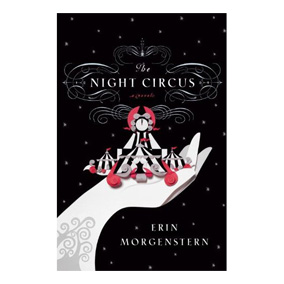Reading Questions for The Night Circus by Erin Morgenstern

Warning: May contain spoilers
Questions and Topics for Discussion
1. The novel opens with a quote from Oscar Wilde: "A dreamer is one who can only find his way by moonlight, and his punishment is that he sees the dawn before the rest of the world." How is this sentiment explored in The Night Circus? Who in the novel is a dreamer? And what is their punishment for being so?
2. The novel frequently changes narrative perspective. How does this transition shape your reading of the novel and your connection to the characters and the circus? Why do you think the author chose to tell the story from varied perspectives?
3. The narrative also follows a nonlinear sequence—shifting at times from present to past. How effective is this method in revealing conflict in the novel?
4. There are a number of allusions to Shakespeare throughout the text: Hamlet, Romeo and Juliet, The Tempest and As You Like It. Explain these references—how does each play reveal itself in the novel?
5. What role does time play in the novel? From Friedrick Thiessen's clock to the delayed aging of the circus developers to the birth of the twins—is time manipulated or fated at the circus?
6. "Chandresh relishes reactions. Genuine reactions, not mere polite applause. He often values the reactions over the show itself. A show without an audience is nothing, after all. In the response of the audience, that is where the power of performance lives." How does this statement apply to both Le Cirque des Rêves and the competition? Which audience is more valuable: one that is complicit or one that is unknowing?
7. Chandresh is portrayed as a brilliant and creative perfectionist at the beginning of the novel, yet he slowly unravels as the competition matures. Is Chandresh merely a puppet of the competition—used solely for his ability to provide a venue for the competition—or do his contributions run deeper?



